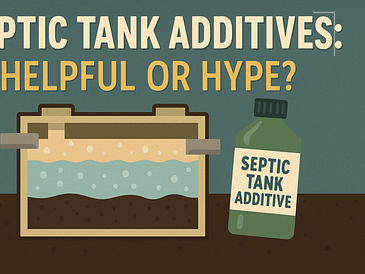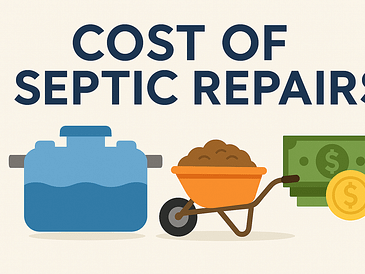
Hawaii septic tanks provide an efficient means of disposing of wastewater generated from kitchens and bathrooms as well as black wastewater from toilets and baths. Waste is collected into the tank where heavier solids settle to the bottom while lighter particles and liquids float to the top.
Sewage pollution in Hawai’i is a significant environmental concern. Cesspools are estimated to release 53 million gallons of untreated sewage every day into our groundwater, polluting it.
Cost
Septic tanks are essential components of home and business ownership as they offer an efficient method for treating wastewater. By filtering out unwanted solids and organic matter, these septic tanks ensure wastewater can safely return into the environment.
However, installing and maintaining septic systems can be expensive; here are some strategies to help keep costs to a minimum.
Start by researching your options for septic tank options, determining the size and amount of wastewater produced as well as your intended usage of said wastewater.
Next, choose the appropriate septic tank type based on your budget and needs. Options available to you may include concrete, fiberglass and polyethylene tanks.
Material used for your septic tank will have an impactful influence on its lifespan; steel tanks often corrode, needing frequent replacement; while concrete and fiberglass models tend to outlive steel ones over time.
As part of your decision making, consider where your septic tank will be situated. If it is in an urban area, additional fees may apply and may have an impactful financial effect on you.
Septic systems need periodic maintenance and repairs, including pumping out sludge, adding lime to the septage tank and cleaning drainfield pipes.
Soil fracturing may be necessary in some septic systems in order to break up waste accumulations, and should always be completed at your own cost. Check with local septic tank companies for an estimate of this service cost.
One way to reduce septic system costs is to ensure you’re not contributing to the issue yourself. For instance, instead of using a garbage disposal, consider composting food waste instead.
Composting can significantly decrease water usage for your septic system and save money in sewage bills over time. You can find more information on composting in Hawaii by visiting page three of Hawaii Backyard Conservation, Ideas for Every Homeowner.
Septic tanks can experience issues at any time, especially in remote locations. Failing septic systems may lead to backups and unpleasant smells within your home, sometimes necessitating replacement as the only viable option.
Installation
Septic tanks are underground reservoirs designed to collect untreated wastewater from homes and businesses for treatment, serving as an integral component of wastewater management systems and helping prevent pollution of local waters. Septic tanks can be found everywhere from single-family residences, small businesses, to larger commercial facilities.
An efficient septic system should provide wastewater treatment to reduce pollution in groundwater and surface waters. Conversely, any malfunction may endanger human and wildlife health and damage natural resources like streams and rivers.
Installation of a septic system begins by conducting an assessment of your property, including soil testing, drainage analysis, and rock examination to ascertain whether or not a septic system would be suitable. If it turns out not to be appropriate, alternative solutions must be explored instead.
If you are planning on building a house, your local environmental agency or building department will have all of the information needed. In most cases, they’ll ask for details such as where your septic tank system will be situated as well as any proposed construction plans.
In many instances, you will also need to submit a permit application, with evidence showing your system has been functioning as it should and is being regularly pumped out.
Most septic systems come equipped with an outlet baffle or sanitary tee at their outlet end to prevent solids from escaping into the drainfield and clogging it, leading to system failure.
Septic systems need to be regularly pumped out in order to remove solids that have collected in the tank and prevent overflow. Failing to pump regularly could result in sludge buildup in your filter bed and cause it to overflow from your septic tank, potentially leading to overflow and failure of its system.
If your septic system is having issues, reach out to your local environmental agency or building department for advice on what steps can be taken. They may refer you to an expert for additional help if necessary.
Hawaii recently passed a bill offering low-income homeowners grants or rebates to convert cesspools to septic systems, an encouraging step forward on this difficult issue. They will need to ensure these funds reach those most in need.
Maintenance
Homes without municipal sewers often depend on septic tank systems for waste disposal, with these on-site systems lasting decades if properly cared for.
Dependent upon the size and use of your septic tank, and depending on who uses it, sludge/scum build-up may require service every 3 to 5 years. Allowing this accumulation could lead to soil damage and backups that could endanger both family and property.
To avoid this scenario, contact a licensed septic tank service professional to clean your septic system. For guidance in finding one in your area, refer to the National Onsite Wastewater Recycling Association database of service professionals.
Septic tanks are underground containers designed to collect and filter sewage and solids waste, where bacteria work to convert these materials into less harmful forms.
Septic tanks are engineered to contain an optimal balance of bacteria that keep waste contained within their confines and away from your yard. To achieve this balance, it’s crucial that homeowners monitor both how much water is consumed within their household as well as the types of items being flushed down the toilet.
The Environmental Protection Agency has provided a list of items which should not be flushed down the toilet, such as sanitary napkins, disposable diapers, paper towels, cat litter and cooking grease or oil. Such substances disrupt the delicate balance between bacteria in septic tanks and lead to backup or breakdown altogether.
Symptoms of an ineffective septic tank include an offensive smell and back up of soil into your yard or ground, standing water around its surroundings, gurgling water, slow drains or even sewage backup in your home.
Scum or sludge buildup in the ground around your septic tank could also signal trouble; if this occurs, contact a professional service immediately for advice on servicing.
Regular septic tank cleaning in Honolulu is the key to avoiding costly repairs and maintaining optimal operation of your system, as it ensures it won’t pose health hazards to both you and the surrounding community.
Repairs
A septic tank is an integral component of your home’s wastewater system, serving to store waste from toilets and drains before being sent for treatment.
Maintaining an efficient septic system involves practicing water conservation and regularly pumping your tank.
By having it regularly inspected by a professional, you can also ensure your septic system is operating optimally – this can prevent serious problems from developing in the future, while saving both money and effort over time.
One of the key steps you can take to extend the lifespan of your septic tank is having it regularly pumped out, to remove any solids which could clog its system and pose issues.
Careful use of your toilet and yard can extend the life of your septic tank by being mindful about what goes down the drain – including paint, chemicals, kitty litter, coffee grounds or anything that could clog pipes and eventually bring your system down.
Overusing soap may clog drains, so liquid detergents are typically preferable over creams or foams for toilet maintenance. You could also try natural cleaning solutions like vinegar and baking soda for better results.
If your sink or toilet is leaking, it is essential to get it repaired immediately in order to save both money and resources in the form of major repairs later. Also, this will have less of an environmental impact than delaying fixing the problem further down the road.
Avoid overloading your septic system as this could result in foul smells in your home and force sewage out of its drain field. Overflowing septic systems can be very expensive to fix.
Pumping out your septic tank regularly by a trained septic professional is another effective way of safeguarding it and keeping it safe for future generations. Doing this will ensure that its system functions as it should and remains reliable over time.




